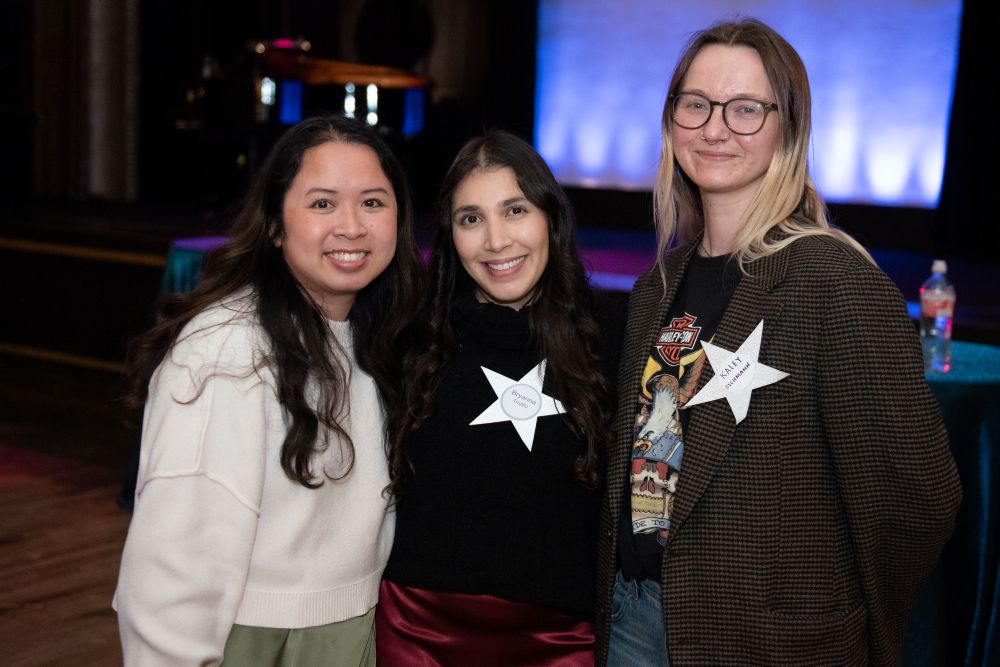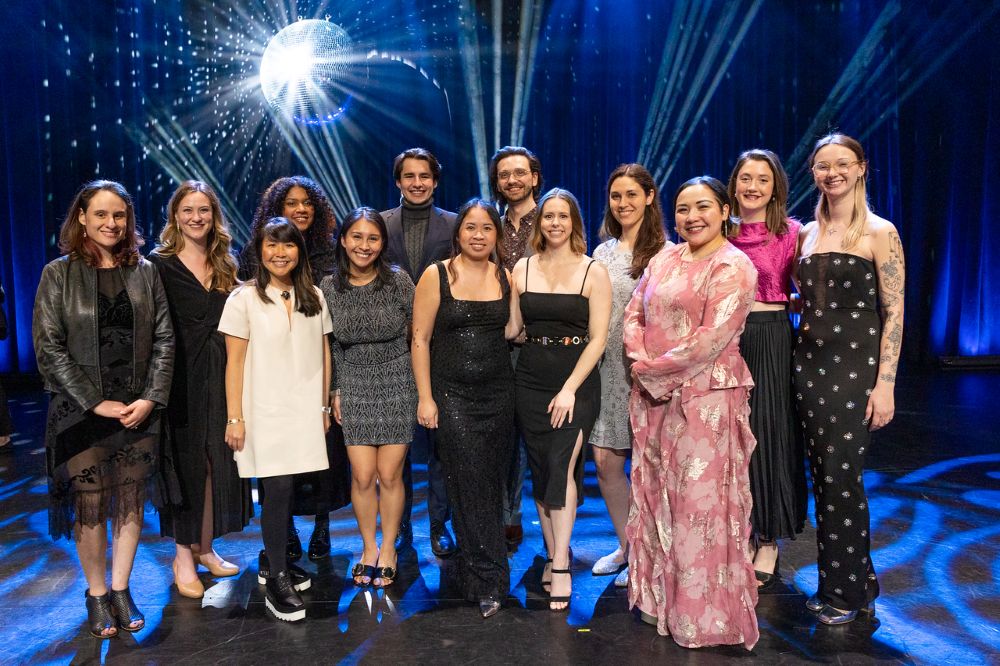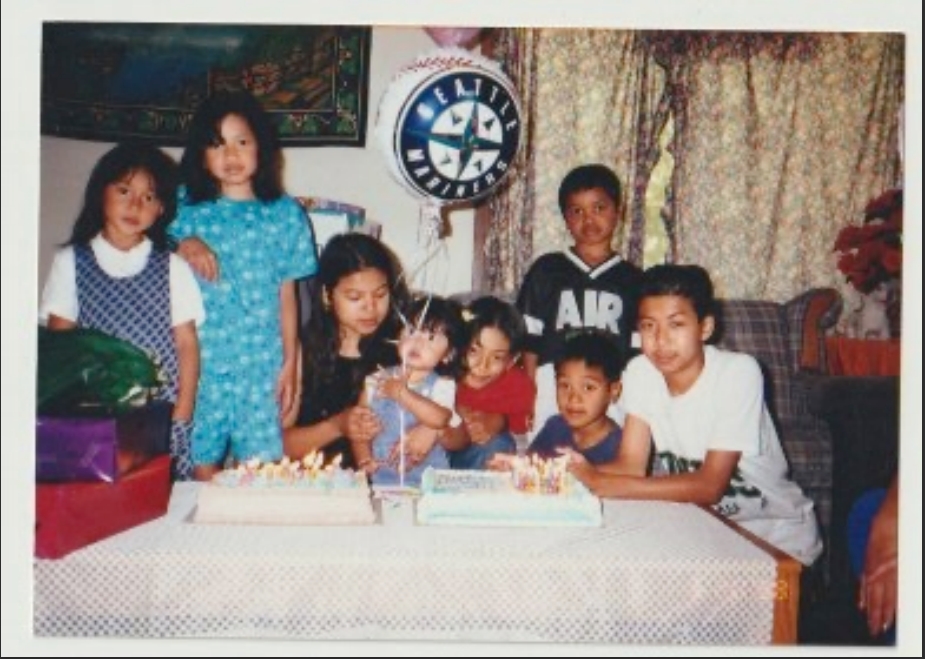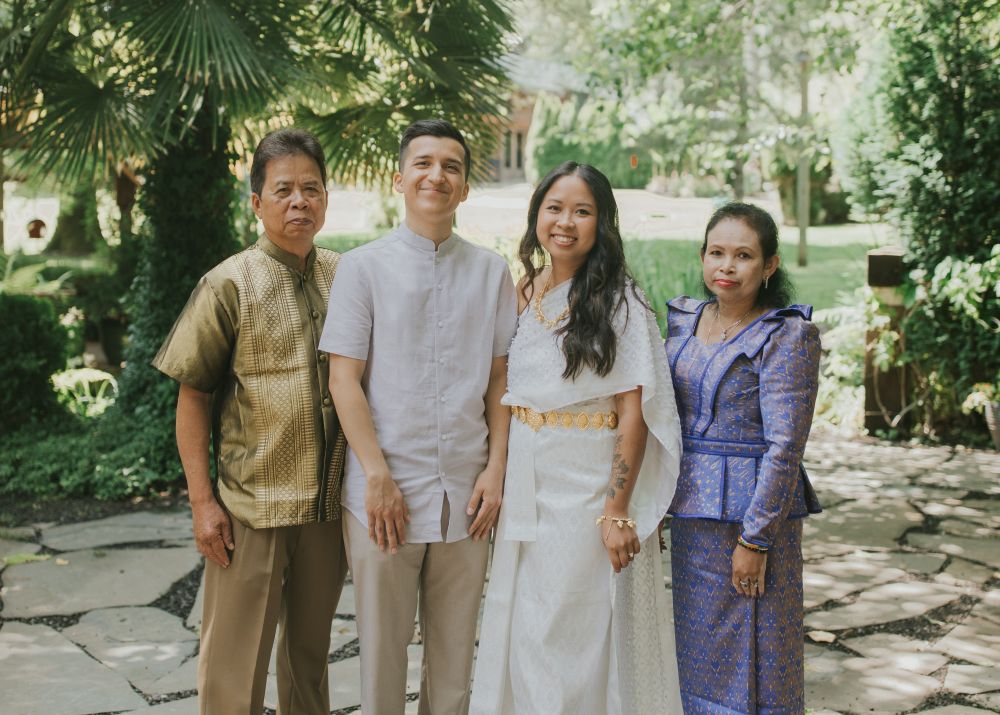In honor of AANHPI Heritage Month in May, we’ve enjoyed speaking with staff members who identify with Asian American, Native Hawaiian, or Pacific Islander heritage about how their cultural background informs their worldview — and the work they do at Plymouth Housing.
Sharon Balbin is Events Manager at Plymouth. In addition to planning Plymouth’s three main fundraising events – Key to Hope, Pop Some Tops, and Seattle Dances — Sharon works with event steering committees, our Promoters of Plymouth (PoP) Ambassador Board, and Plymouth champions throughout the year. Her stewardship and engagement ensure that Plymouth can raise the funds needed to continue our vital work.

Sharon, left, at a kick-off event for a Plymouth fundraiser
What is your favorite part of your role at Plymouth?
What I love most is the opportunity to connect with people who are genuinely interested in learning about and supporting Plymouth’s mission. I enjoy meeting them where they are, welcoming them, and helping them become partners in our mission to end homelessness.
How does Plymouth’s mission resonate with you?
I am passionate about Plymouth’s mission to end homelessness because it goes beyond providing housing. I appreciate that we understand the importance of wraparound services and meeting residents where they are. We don’t impose expectations or assign goals based on societal norms; instead, we focus on supporting individuals as human beings who deserve stability, dignity, and the opportunity to heal and thrive.
I feel grateful to be in a role where I can share this perspective and help others gain a deeper understanding of what it truly means to support residents and end homelessness.

Sharon, center, with the Resource Development and Communications team at Seattle Dances 2025
Where were you born and raised? What is your cultural identity?
I was born and raised in Seattle, specifically West Seattle! I am Cambodian and first-generation Asian American.
How do you celebrate and honor your identity in your daily life?
My parents grew up in Cambodian villages where everyone knew and supported one another. Community is a constant for value for us. Whether during holidays, celebrations, or everyday life, my parents always showed up for their community with something to contribute.
I honor that legacy by continuing the tradition of being there for others, no matter what. While the phrase “it takes a village” is often used in the context of raising children, I believe it applies to all of us. Life brings struggles big and small, and having a supportive “village” is what helps people not only survive but also thrive.

Sharon, age 3, with siblings, cousins, aunts, and uncles
When and how did your family come to the United States?
My family fled the Khmer Rouge regime during the Cambodian genocide. They were all at different refugee camps in Thailand and were sent to live here at different times when they were sponsored in the early ‘80s. My mom was immediately enrolled in the high school I ended up attending, but stopped going because she didn’t speak any English and didn’t know what was going on. It was another moment of pride for me to be able to graduate there because of that.

Sharon at the Cambodian portion of her wedding
What are some of your favorite things about your culture?
I’m incredibly proud of the resiliency of the Cambodian people. So much of our art, history, and tradition was destroyed during the genocide, yet because of our strength and determination, those memories weren’t lost. They continue to be passed down through generations.
Both my favorite and least favorite fact is that the Cambodian language, Khmer, has the longest alphabet in the world with 74 letters! Most of my U.S.-born family was enrolled in weekend Cambodian school growing up, and most of us quit without learning to read because it was that hard.
But even though it’s difficult, there’s a sense of pride in being able to understand it when spoken. The complexity of our language is just another reflection of our depth as a people.